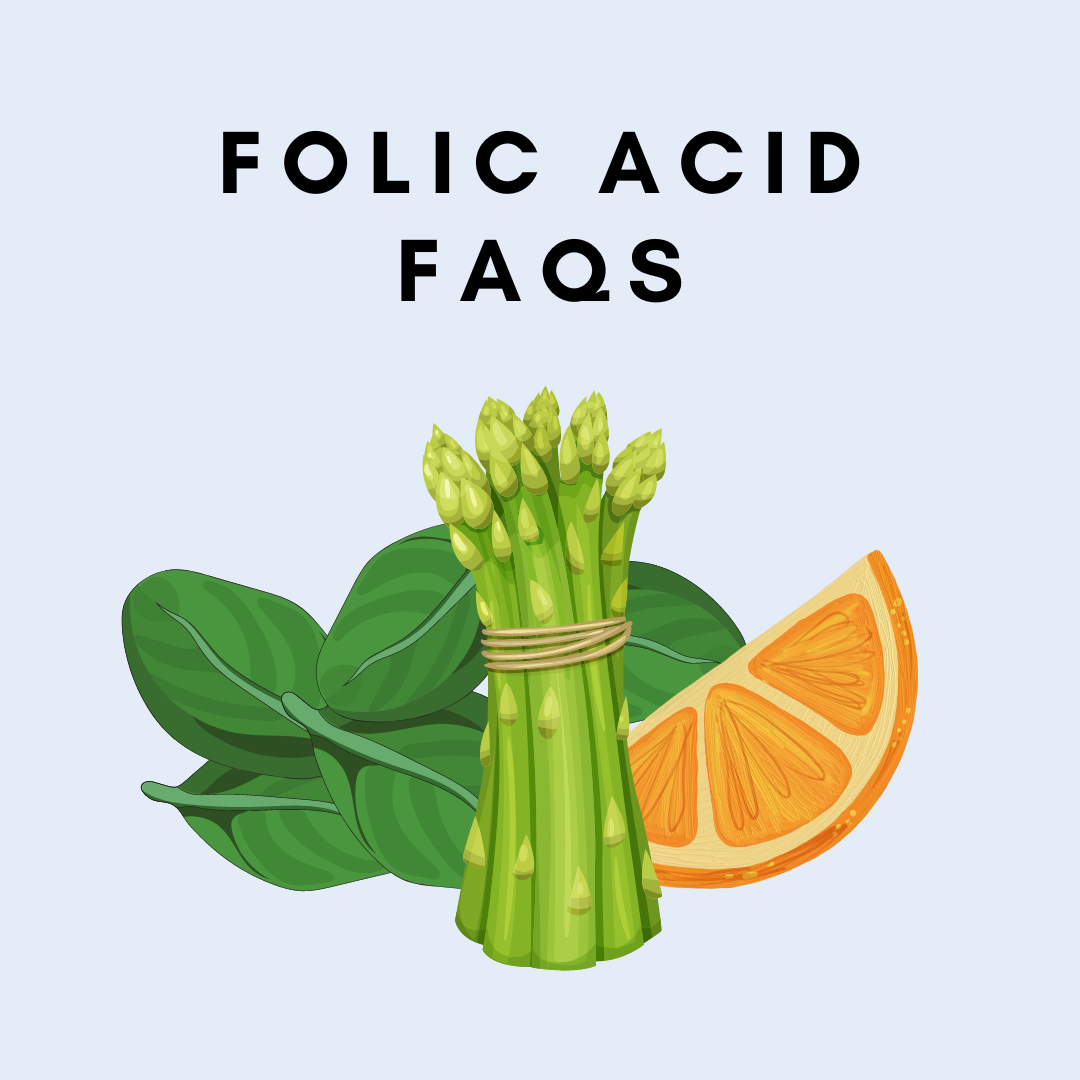5 Important Facts about Folic Acid

We’ve always been encouraged to eat leafy greens – but how is that directly impacting your health, fertility, and future baby?
For Folic Awareness Month, Dara Godfrey, RMA of New York’s Registered Dietician, has the answers to your most pressing questions about this nutrient that is essential for fetal growth and development.
1. What’s the difference between folic acid + folate?
Although folic acid and folate are often used interchangeably AND both play a role in preventing birth irregularities (and aiding in the production of healthy red blood cells), they are quite different.
Folate is a broad term for a variety of types of vitamin B9. In the naturally occurring form, folate can include:
- Dihydrofolate (DHF)
- Tetrahydrofolate (THF)
- 5, 10 methylenetetrahydrofolate (5,10-methylene THF)
- 5-methytetrahydrofolate (5-methyl-THF or 5-MTHF)
As part of the folate umbrella, there is folic acid, which is the synthetic (or man-made) form of folate. It is often added to a variety of foods (like cereals, pastas, grains and juice). Folic acid is typically used in fortification and supplementation (over folate) since it’s more stable (with heat and light) than folate.
2. Are folic acid + folate absorbed the same?
Folic acid is more readily absorbed (bioavailable) than folate from food. However, methylated folate (5-MTHF), found in many prenatal vitamins on the market today, has comparable bioavailability to folic acid. Methylated folate supplementation may be more favorable, especially for those people with the MTHFR mutation.
3. What are the highest sources of dietary folate:
Some of the richest sources of folate include spinach and other leafy vegetables, black-eyed peas, liver, asparagus, Brussel sprouts, oranges, avocados, nuts, and seeds (according to the National Institute of Health).
4. Is folic acid important to start taking when you become pregnant?
According to the CDC, folic acid is important for women to take before becoming pregnant since having high enough levels of folate in the blood can help prevent neural tube irregularities. So taking it at least about a month before conception may be helpful to prevent neural tube defects.
5. Can women take too much folic acid? Are there any concerns with taking too much?
It’s extremely rare to reach toxic levels when it comes to eating folate from food sources. However, the upper limit of folic acid supplementation is 1,000mcg daily since higher levels may contribute to masking a B12 deficiency. This is seen much more commonly in people who are vegan who tend to have lower B12 levels (as most sources of B12 in foods come from animal sources).
